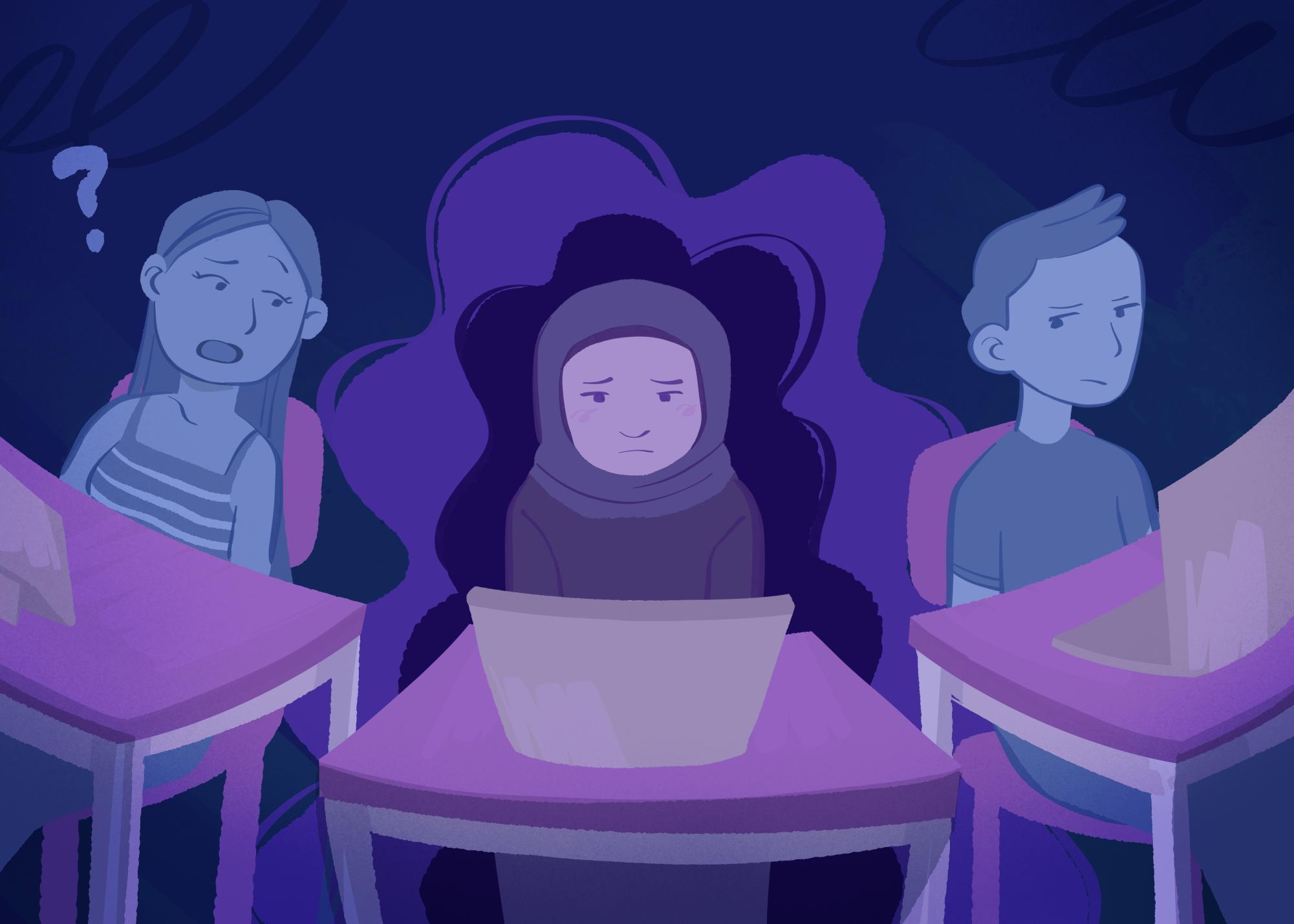Ramadan, a month of prayer, fasting and self-reflection for Muslims, started two weeks ago. It is the holiest month of the year for Muslims. We fast from dawn to sunset, refraining from drinking water or eating. Ramadan gives Muslims the chance to practice self-restraint and reflect on their religion.
But as a Muslim student at Columbia, I struggle without support or recognition for what should be an enjoyable and insightful month.
Since Ramadan began, I already had a staff member I see often say to me, “I don’t think God would be upset if you drank water.” Another student looked at me uncomfortably when I used a study room to pray at 33 Ida B. Wells, a Columbia building without a designated prayer room. Only one out of my six teachers mentioned Ramadan or offered accommodations.
Not acknowledging Ramadan erases me.
Neither the Communication Department, where I am a student, or the college more widely has acknowledged that it is Ramadan. By contrast, Dominican University in suburban Chicago and DePaul University, both Catholic, provide considerable resources to their students and public greetings during the month.
Columbia is known for being a school accepting students of any race, ethnicity or sexual identity, whatever the barrier is that could have caused a student to have a bad experience at any other school. It is central to how Columbia defines itself as a school where everyone can find an accepting community while they complete their studies. However, Columbia fails to support religious groups, specifically Muslim students.
Throughout my four years at Columbia, I have experienced countless comments about my race, have received unsolicited opinions about war and conflict and even had a faculty member assume aloud in front of the whole class that I was an immigrant. I am not an immigrant. I am a Palestinian-American, born and raised in suburban Chicago. My grandparents immigrated here from Palestine in 1973. I chose to come to Columbia even though it was not the traditional career path my family would have expected of me because of the inclusivity Columbia highlights.
My current experiences at Columbia are not ones I thought I would have. As one of the few Columbia students who is visibly Muslim because I cover my hair, I have had uncomfortable and unnecessary interactions with faculty, staff and classmates due to the religion I practice.
Many of these biases are likely unconscious. But they happen because Columbia is not more direct when talking about religious differences or religion at all. Columbia emphasizes diversity, but beyond race and sexuality, there are not enough efforts that students can see that the college’s efforts are meaningful. Columbia faculty is still predominantly white, and because of this, there is no push to give students, faculty and staff a chance to unlearn biases they may have towards Muslim and brown students.
Since my time here, there have been multiple issues the Muslim Student Association and Students for Justice in Palestine fought for between staff at the school. Last semester, Columbia turned the only prayer room on campus into a “sensory room” for neurodiverse students. The well-meaning effort happened because faculty didn’t know the significance of the room to Muslim students.
As the Muslim Student Association’s vice president, I couldn’t understand why more consideration wasn’t given to both the religious students who used the space or the neurodiverse students who needed a quiet spot of their own.
Finally, after a backlash on social media, our complaints were heard.
Shortly after that, in October at the start of the Israeli bombardments on the Gaza Strip, Columbia sent out one singular email offering support for any students feeling affected. Muslims and Arabs on campus reported to the MSA and SJP that they were receiving backhanded comments about the conflict from staff, faculty and other students, saying they didn’t feel safe at the school or with any of the minimal efforts Columbia was putting into combating racism and Islamophobia. Our reports were made known to multiple staff on campus, yet the only group that offered us true support was Student Diversity and Inclusion. SDI offered us spaces to pray, funding for our dinners and support for our exhibition “Artists against Oppression.”
MSA and SJP have had to build up our two clubs from the ground to be able to provide these safe spaces for our community that Columbia staff and faculty could not do for us. Every year, MSA hosts an Iftaar, a dinner for anyone at Columbia to join and learn more about Ramadan and to connect with Muslim students on campus. We host check-in meetings with Muslims to see how everyone is doing since Columbia does not do this. We have “Islam 101” workshops and other informational sessions about our religion because we are the only ones working with Columbia students to combat biases that need to be unlearned.
As a Muslim student who has attended Columbia for the past four years, I wish there was an effort made to allow us a chance to bond with our community respectfully and comfortably.The school preaches inclusivity, but leaves out religious groups, especially Muslim students, countless times. This is hypocritical.
The only thing we Muslim students want to see at Columbia is an effort to include and accommodate us on campus. It starts – but doesn’t end – with the simple recognition that this is Ramadan and that Muslim students need accommodations for fasting and prayer.
Muslim students should not have to squeeze their way into diverse spaces and experience conflicts on campus with staff and faculty for us to finally be heard and accepted.




